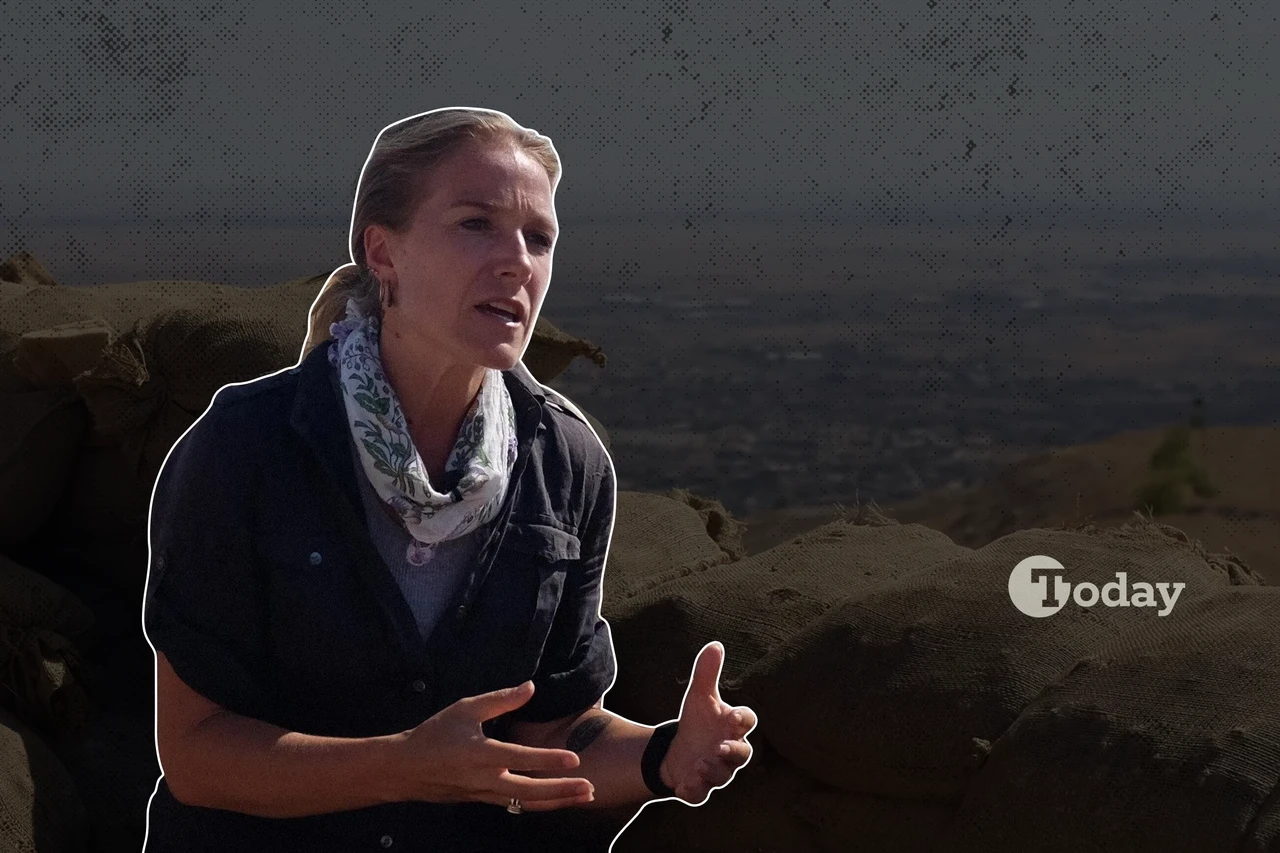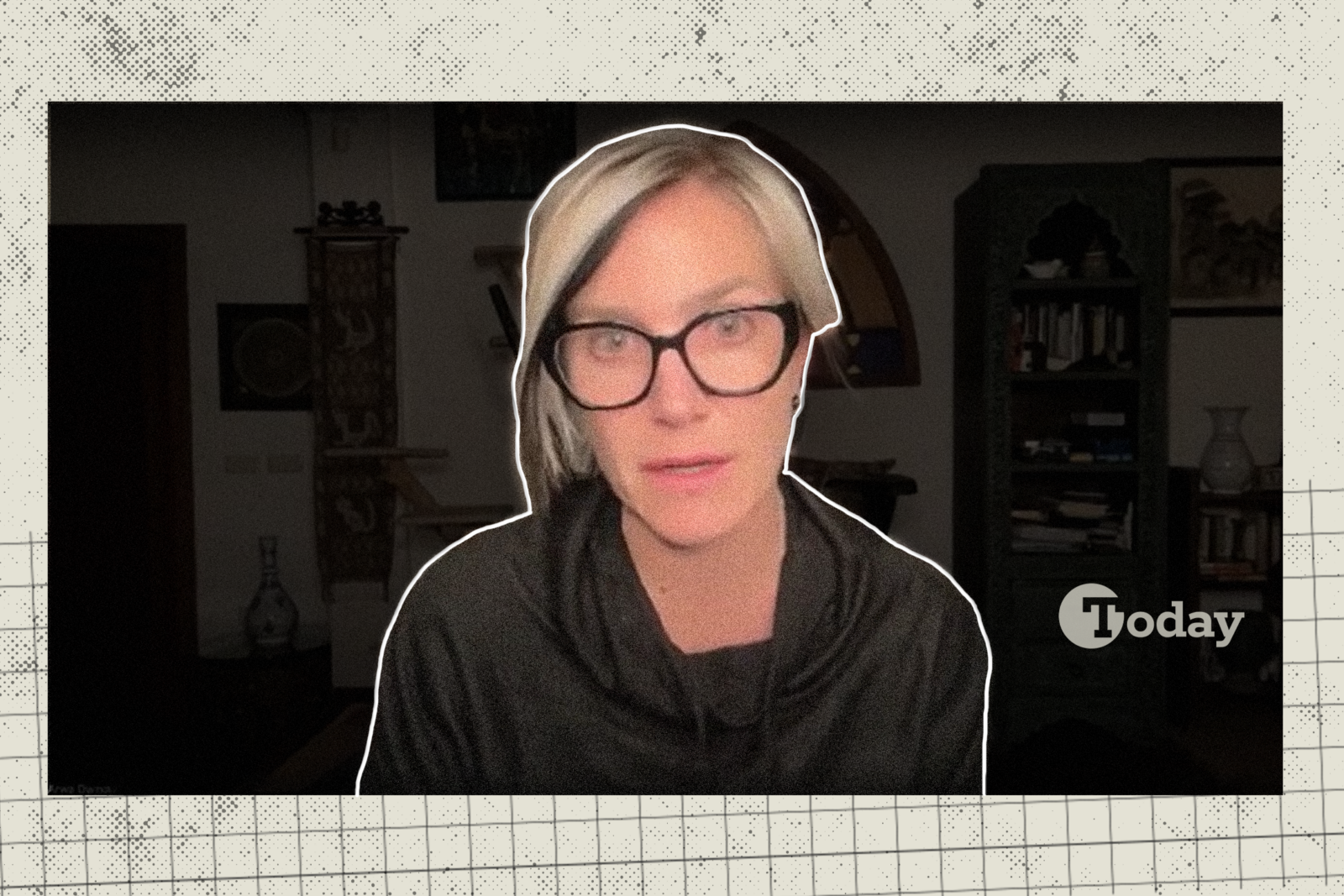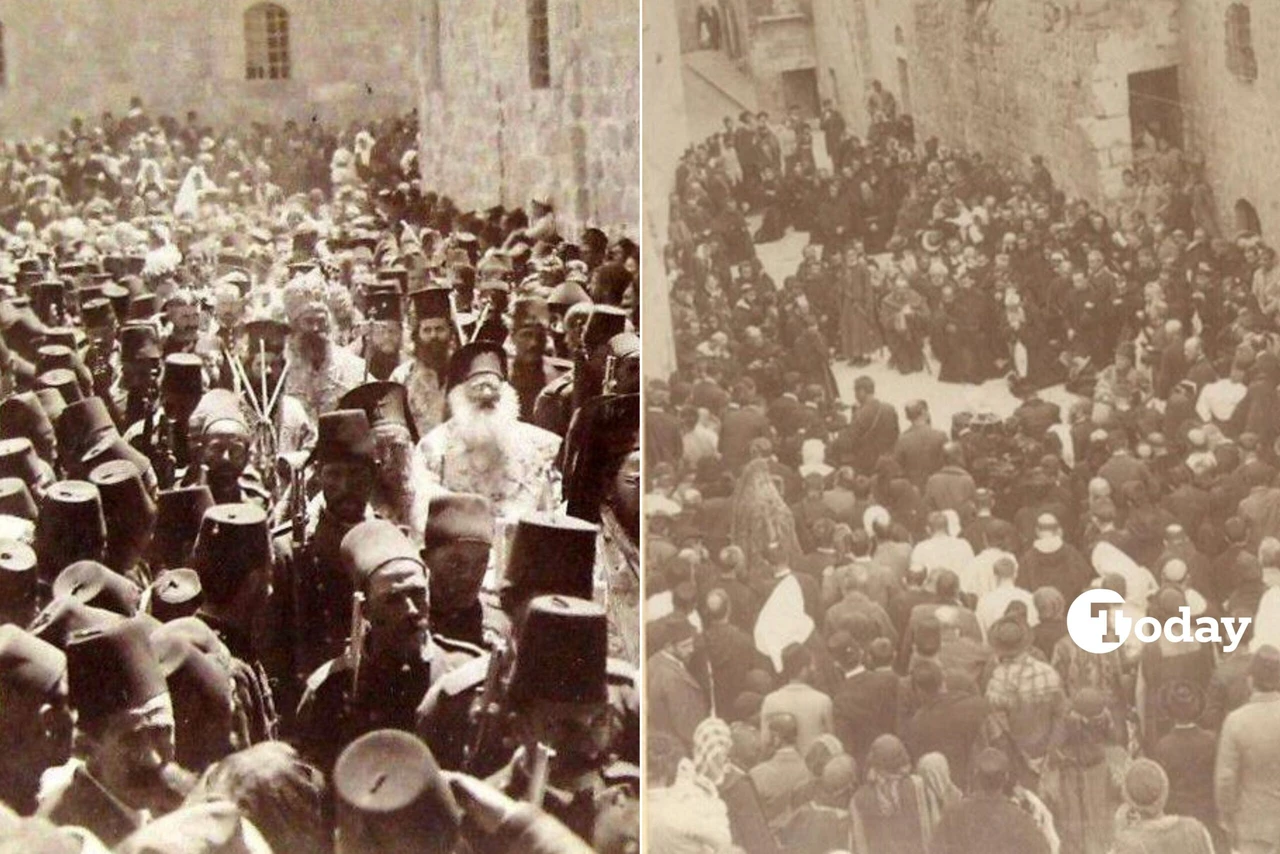Exclusive: War reporter Arwa Damon on Syria’s resilience, world’s role
 Arwa Damon in Mosul. (Collage prepared by Tugce Atmaca)
Arwa Damon in Mosul. (Collage prepared by Tugce Atmaca)
Born in Boston to a Syrian mother and an American father, Damon grew up between two cultures. Fluent in Arabic and English, she recalls a household that reflected her multicultural upbringing: blueberry pancakes sat alongside labneh and za’atar on the breakfast table. Her Syrian roots run deep—her grandfather, Muhsin al-Barazi, once served as Prime Minister of Syria. Damon’s education also reflects her ties to the region; she attended Robert College in Istanbul, widely regarded as one of Türkiye’s top institutions, before pursuing further studies in the United States. Now, she’s back in the city of cats—Istanbul—where she lives with her three feline companions.
Damon’s career has taken her to some of the most volatile regions of the Middle East. After covering the U.S.-led war in Iraq between 2003 and 2010, during which she lived in Baghdad, she relocated to Beirut. From there, she reported on the Arab Spring as it spread across the region and ultimately escalated into Syria’s brutal civil war. In 2016, she entered Mosul with Iraqi Special Forces as they fought to reclaim the city from the extremists.
The human suffering Damon witnessed throughout her career led her to take action beyond journalism. In 2015, she founded the International Network for Aid, Relief and Assistance (INARA)—an organization providing medical and mental health care to war-affected children. INARA now run programs to provide services in multiple conflict zones, including Gaza, which Damon recently visited following an Israeli airstrike that killed aid workers. Türkiye Today interviewed her for an in-depth conversation about Syria.
Emotional toll of conflict reporting
These recent days, journalists have been flocking to Syria in droves, but some reports highlight insensitive behavior in the field. As someone who has been all over the region, I first asked her for advice to share with the ones reporting from war-torn areas. The senior correspondent stressed the importance of sensitivity and humility: “Ask yourself: ‘How would I want to be approached if I were in their situation?’ If you don’t understand the culture or language, ask someone who does. There’s nothing worse than shoving a camera in someone’s face when they’re at their most vulnerable and demanding they relive their trauma.”
War zones are deeply traumatic for everyone who witnesses them. When asked how she manages this as a journalist, she said, “Every single story, every single person you meet takes a little piece of you. You leave parts of yourself behind in the rubble and among the people who trusted you with their pain. You need to be okay with that because you go there by choice.”
She described the surreal contrast between war zones and the comfort of normal life as a journalist: “There’s nothing more jarring than being in a place where people are bombed daily, where children don’t have food or access to a bathroom, and then crossing a border. Hours later, you’re in a hotel with a comfortable bed and hot shower. The two realities are so far apart that your mind struggles to process it.”
For Damon, learning to cope came with years of experience. “It’s a rollercoaster of emotions, but I’ve accepted it. This is the life I’ve chosen because I believe the stories need to be told.”
Blind spots
“The Western media has a short attention span, especially when conflicts unfold in non-Western countries. Syria is the ultimate example of this. The world knew, and yet Syria was written off.” Damon emphasized that the change, arriving at a moment when no one seemed to care, is a testament to the resilience of the Syrian people. Despite the unimaginable loss—half a million dead, millions displaced—Damon sees a spark of hope in Syria. “What we saw recently with Assad’s control collapsing in certain areas was momentous. It wasn’t a result of outside intervention. It was purely Syrian-driven.
She pointed to Sudan as another glaring failure. “Sudan has more dead, displaced, and hungry people than any other conflict right now. But it barely registered in the media. That’s an ugly truth: people care more about stories they can relate to—stories about people who look like them.”
She emphasized how Syrians have learned from years of conflict. “The opposition in exile spent the last 13 years planning and working behind the scenes. Politically and militarily, they are far more mature now. Syrians are aware of the manipulations of outside powers. They know what to look out for.”
While Damon doesn’t sugarcoat the challenges ahead, she remains hopeful: “It’s going to be extraordinarily messy and painful, but so much has been lost already. Syrians will fight to make sure that loss wasn’t in vain.”
Authoritarian fear
The criticism isn’t reserved for Western media alone; authoritarian regimes in the region play a key role in shaping narratives to serve their interests. When asked about the flurry of high-stakes meetings among regional leaders, Damon weighed in on the meetings concerning the Syrian revolution. “Of course they’re afraid,” she said. “They were afraid back in 2011 when the Arab Spring first ignited. They quickly crushed protests in places like Jordan, Kuwait, and Bahrain. Syria stands as proof that people’s movements can drive real change.”
She called out the quiet strategies of some authoritarian governments: “There’s a belief among some regimes that letting Syria fail will prove that democracy is doomed and that people shouldn’t even try. But it’s shortsighted. You can keep populations quiet for a time, but you can’t suppress the demand for dignity and justice forever.”
Damon remains convinced that change is inevitable. “No system—no family—can rule forever. It might take decades, but history tells us that people will rise when they feel their lives lack dignity.”

Sanctions debate
Addressing the critical issue of sanctions, Damon emphasized their crippling impact on Syrians. “The sanctions aren’t stopping humanitarian aid, but they are strangling Syria’s economy. Banks, businesses, infrastructure—everything Syria needs to rebuild is being choked. Syria doesn’t just need food parcels; it needs a functioning economy to support its people.”
While lifting sanctions entirely may be complex and time-consuming, she urged immediate action. “Countries need to expand the exceptions to sanctions. Services must be allowed to operate—banks, medical systems, and infrastructure. Without that, Syria cannot move forward.”
On Europe’s policies
This week in Germany, the main opposition parties, the Christian Democratic Union and Christian Social Union (CDU/CSU), proposed offering Syrian refugees 1,000 euros as an incentive to return to their home country. There were some others offering the same type of so-called aid. When asked about the proposal, Damon didn’t hold back.
“Offering refugees money to return to their country, especially when it’s neither safe nor stable, is fundamentally unjust,” she said. “That’s exactly the counterargument we’re hearing, especially as some European countries move to suspend Syrian asylum applications.
Even if Syria could guarantee security today—which is a big if—that’s only part of the equation. You also need to ensure access to basics like food, water, education, healthcare, and functioning infrastructure. Syria doesn’t have any of that right now.
The country is in no position to handle the return of millions of refugees. It’s already grappling with 7 million internally displaced people, 70% of the population relies on humanitarian aid, and 90% are living in poverty. The conditions simply don’t exist to justify pressuring or incentivizing refugees to return.”
Call from Damon
Reflecting on foreign involvement in Syria, Damon shared an interaction with Syrian opposition members. “When President-elect Trump tweeted that the U.S. should stay out of Syria, the Syrian opposition’s reaction was clear: ‘Perfect. That’s all we want.’ Syrians don’t want more outside interference. What they want is international support to hold elections, identify corpses, rebuild infrastructure and ensure accountability.”
Her message to foreign powers was clear: “Support Syria, but stop using it as a chessboard for national agendas.”



